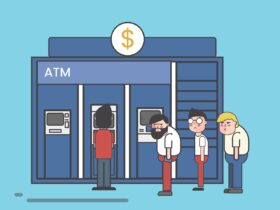
I am often asked about Euribor, I answer.
What is Euribor?
If you have never heard of such a thing, then most likely you have never taken out a home or mortgage loan. Those who areAs you know, the home loan rate in Europe includes the Euribor rate and the bank margin, which in most cases is stable and may differ for each client. For example, if the Euribor is 0,1% and the margin is 2,5%, then the housing loan rate is 2,6%. Since the Euribor rate is constantly changing, it is important to take into account that its changes also affect the amount of your loan payment (author: Kati Voomets, Swedbank).
Ok, it is clear that the loan rate depends on the Euribor, but what is it? In very simple terms, this is the base rate (interest) on loans offered by the European Central Bank to commercial banks such as SEB, Swedbank or LHV. But the European Monetary Market Institute manages this percentage, depending on what kind of economic situation has developed in the European market.
How was Euribor supposed to work?
Let's just say that all systems are far from ideal, financial instruments that are invented do their job in the short term, and then stop working from the word almost completely in the long term. The idea of Euribora was very good at the initial stages - to create an instrument in which the European Central Bank could quickly influence the events taking place in the economy. The economy overheats and everyone has a lot of money like in 2008? Then the ECB quickly raises rates by taking money from Swedbank (just an example) and thereby encourages a cooling in borrowing, since the latter, having less cash on its balance sheet, will lend less and more strictly. Plus, the payment of each individual client on the loan becomes larger and everyone spends less money. Thus, the ECB "takes" extra money and can level the events of 2008. Profit!
Negative rate
But! The economy took a different turn. It turned out that everything that was invented and the restrictions that are in effect today are already cooling the economy well. A lot of concomitant factors are happening - war, oil fluctuations, Trump quarrels with China, banks feel bad, Covid is the same, for example. And what should the ECB do? The economy needs to be rescued! Maximally open all taps to issue new money and stimulate the economy. Thus, we came to a very interesting scenario - a negative rate.
A negative rate should ideally force commercial banks to lend more, rather than save money in accounts with the Central Bank, because Swedbanky is now paid extra money for taking a loan from the ECB! The population, for which the yield on deposits is declining, should spend more, which, together with emission pumping, should develop the economy, but not everything is so simple.
In reality, things are not so smooth. People do not spend money, but save it, preferring to do it in accounts or keep it at home in the form of cash. Analysts at Bank of America conclude that negative rates have not been able to contribute to an increase in inflation expectations in the euro area. I also think that the “new” tool of the system has failed!
What will happen to Euribor?
Now to the main idea. Why is everyone asking me what will happen to this Euribor? But what if it suddenly rises and “me” pays as much as 500 euros instead of 300!? answeringyup, the tool failed (almost) and I don't see a scenario in which it suddenly starts to rise sharply. Do you see what is happening with the economy? Do you see that Euribor has been negative for so many years? So, he will stay there at this level. And taking 1,3 or 6-month Euribor does not make any significant difference for me. Take any of your choice, they are all negative and will remain at this level for the next decade.
I will be your comments! Encourages you to write more stuff.









leave a comment